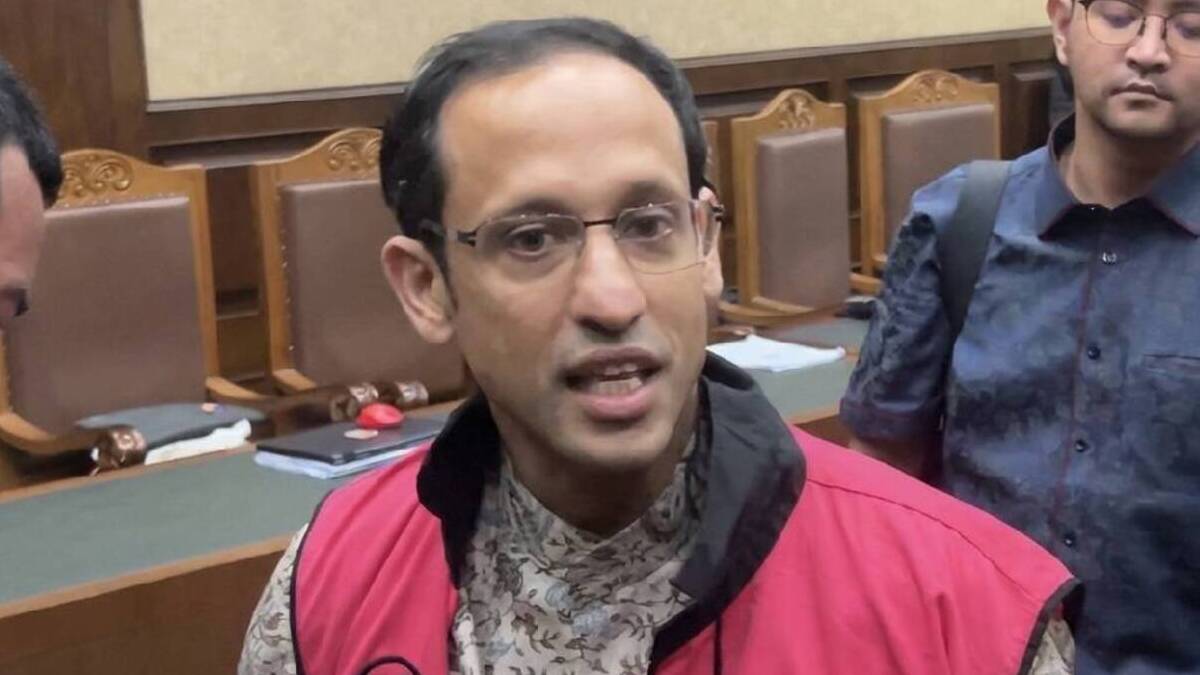Chinese national admits to role in global cybercrime case involving stolen personal data in Singapore
A Chinese national has pleaded guilty in Singapore to assisting in the illegal acquisition of personal data tied to a global cybercrime syndicate. The case involved stolen information from South Korean gambling websites used to promote illegal betting operations.

- Chinese national Zhang Qingqiao admitted to assisting in the unlawful acquisition of personal data linked to South Korean gambling sites.
- The case is part of a wider global cybercrime probe that saw multiple arrests and over S$1.5 million seized in cash and cryptocurrency.
- Prosecutors have sought a jail term of nine to 12 weeks, while the defence argued for a fine, claiming Zhang did not profit from the scheme.
A Chinese national linked to an international cybercrime network has pleaded guilty in Singapore to assisting in the illegal acquisition of personal data.
On 26 September 2025, 39-year-old Zhang Qingqiao admitted in court to one charge under the Computer Misuse Act. He was arrested in Singapore on 9 September 2024 following an extensive islandwide operation that targeted suspected members of a global syndicate.
The case centred on the theft of personal data from South Korean gambling websites, which was later used to promote illegal online betting operations. Prosecutors said Zhang played an “enabling” role in the scheme, facilitating transactions between data brokers and gambling operators, even though he did not personally profit.
According to the prosecution, the case highlights the expanding reach of transnational cybercrime networks that exploit digital platforms and cross-border data markets.
Zhang also faced an additional charge of offering to purchase personal data of Indian nationals from online gaming sites, though this charge was not directly linked to the South Korean operation.
Origins of the scheme
Court documents revealed that Zhang created a WhatsApp group named “Korea” on 28 July 2023, adding three individuals: Chinese national Sun Jiao, 42; Singaporean Lee Kok Leong, 38; and later, 36-year-old Clovis Leslie Lim.
Zhang believed Sun could sell personal data while Lim could use the information to promote gambling platforms targeting South Korean users.
Within a week, Zhang provided details of two South Korean gambling websites to Sun, who extracted personal information from them. On 12 August 2023, Sun supplied Lim with the data of 1,000 individuals.
Investigations found that Lim allegedly used this data to promote illegal betting activities through targeted online advertising. Prosecutors stated that Zhang’s actions were premeditated and critical in connecting the key parties who benefited from the operation.
Arrests and seizures
Zhang was apprehended at his residence along Cairnhill Road during a coordinated enforcement operation involving over 160 officers. The operation was part of a broader crackdown on cybercriminal groups operating in and through Singapore.
During the raid, authorities seized S$465,000 in cash, four thumb-drives, an Apple Watch, and a cryptocurrency wallet. The police said the digital storage devices are undergoing forensic analysis for potential evidence of additional offences.
The same operation led to the arrest of five other suspects, including Sun Jiao and Singaporean national Goh Shi Yong, 34.
From Sun’s premises, investigators seized five laptops, six mobile phones, S$24,000 in cash, and S$1.1 million worth of cryptocurrency.
Authorities believe the suspects were part of a transnational cybercrime ring involved in data theft, illegal gambling promotion, and money laundering. The group allegedly targeted vulnerable websites across multiple jurisdictions.
Related prosecutions and wider network
Four other Chinese nationals — Sun Jiao, 32-year-old Liu Yuqi, 35-year-old Huang Qin Zheng, and 38-year-old Yan Peijian — were charged in court on 10 September 2024.
Prosecutors alleged that they collaborated to exploit website vulnerabilities and acquire sensitive data, while Singaporean Goh provided local logistical support. Sun faced two counts under the Computer Misuse Act, while each of the other three co-accused faced one charge.
Court records indicate that the accused shared data through encrypted messaging channels and cloud storage systems to conceal their digital footprints.
Prosecution and defence submissions
Prosecutors have asked the court to impose a jail term of nine to 12 weeks on Zhang, citing the premeditated nature of his conduct and the significant amount of personal data involved. They argued that his role in establishing communication links and providing website sources directly facilitated the offence.
Deputy Public Prosecutor Tan Hui Ling said the case underscores “the sophistication of cybercrime networks that operate without geographical boundaries” and emphasised the need for deterrent sentencing.
In mitigation, Zhang’s defence counsel argued for a fine of S$10,000 instead of imprisonment, asserting that Zhang acted merely as an intermediary and derived no financial gain. The defence maintained that Zhang did not access the stolen data and had ceased communication with his associates prior to his arrest.
Zhang’s sentencing has been adjourned to a later date pending further submissions.
Growing cybercrime risks and regulatory response
Singaporean authorities have intensified operations against cybercrime syndicates that exploit local infrastructure for cross-border offences. According to the Cyber Security Agency of Singapore, data theft and online gambling-related crimes remain among the fastest-growing digital threats.
The Ministry of Home Affairs has also announced plans to strengthen laws under the Computer Misuse Act to enhance penalties for offences involving transnational syndicates and large-scale personal data breaches.
Experts say the Zhang case demonstrates the complexity of digital crime ecosystems, where participants often play specialised roles within a distributed criminal network.
The Singapore Police Force reiterated that it will “continue working with international partners to disrupt and dismantle organised cybercrime operations targeting or using Singapore’s digital infrastructure.”







